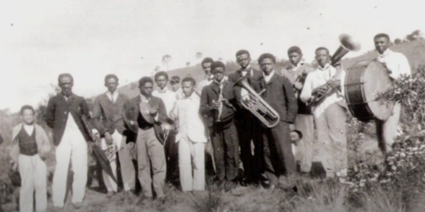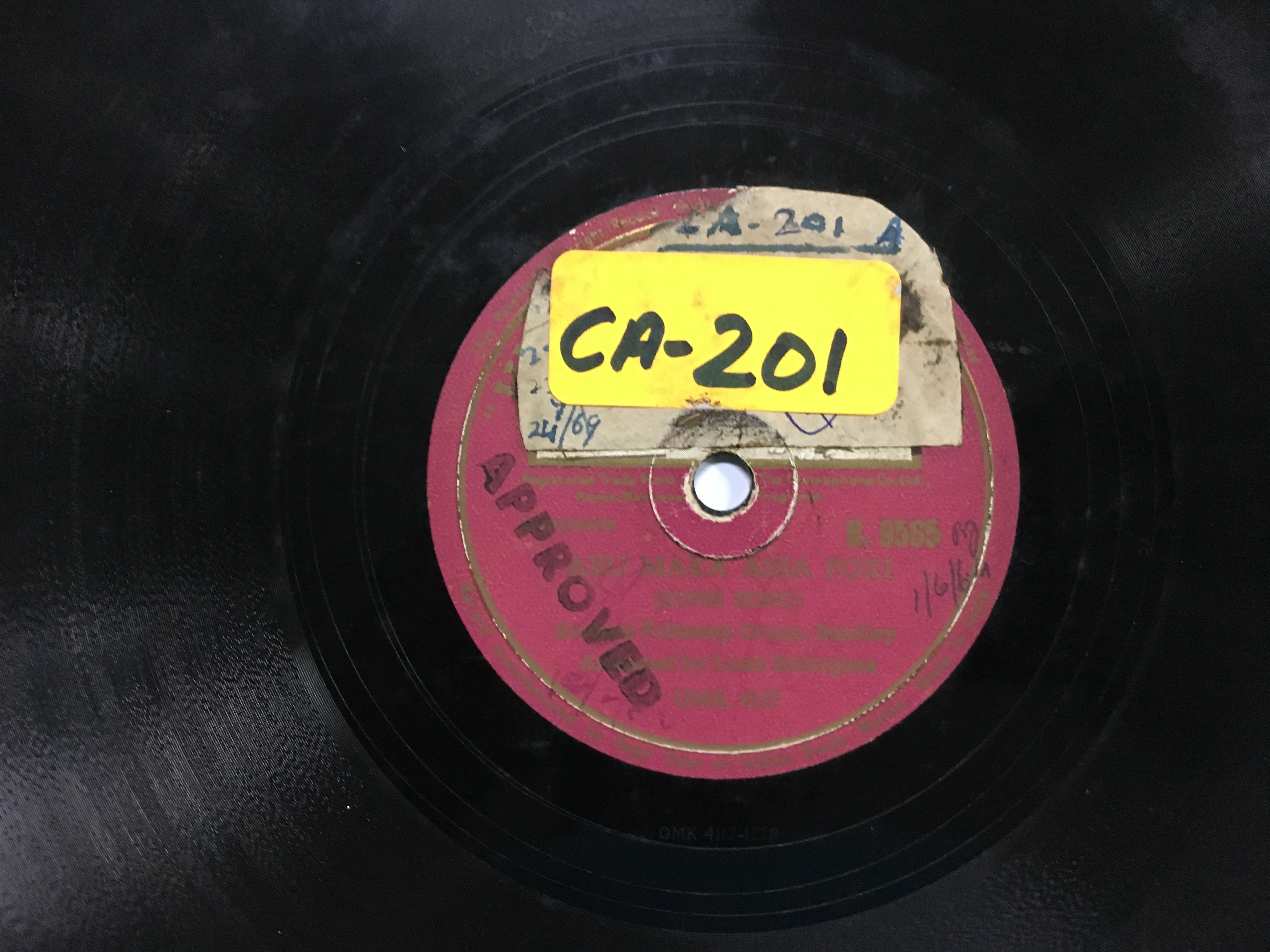Selected Recordings
What was the role of phonographic industries in the construction of shared musical imaginaries between countries and territories such as Portugal, Brazil, Mozambique and Goa? In what ways were 78 rpm recordings used to construct, evoke or emphasize sociocultural alterities in these places? In what ways did phonographic industries reinforce processes of cultural domination using racial and gender stereotypes through music?
This section seeks to answer these questions by analyzing a selection of recordings from the connected sound archives that make up the Liber|Sound project. These are recordings that express not only transoceanic musical transits, but also processes of construction of alterity, cultural domination, creation of racial stereotypes and processes of resistance to colonial power in its different instances.
Music and racial issues
Recent studies in the field of ethnomusicology and popular music have placed emphasis on the racial issue associated with popular music archives. American authors such as Jennifer Lynn Stoever and Nina Eidsheim and Brazilian historian Martha Abreu have dedicated their work to the issue of the construction of sound "racialities," especially by the radio and record industries in the first half of the twentieth century.
In line with recent trends in anthropology that place the question of sound as primordial to the understanding of power relations between different social classes, Stoever proposes the concept of "sonic color line" to designate the set of sound strategies linked to the ideological demarcation between whites and blacks in the North-American context. For the author, the concept would be linked to the construction of demarcating sound indexes, which would allow listeners to construct and discern racial identities based on specific voices, sounds and soundscapes, enabling them to mobilize racially coded sounds for discriminatory purposes.
How have the record industries in Lusophone countries and territories contributed to the construction of sound markers associated with raciality? This section presents some examples of racial stereotypes conveyed through the record, constituting sonic color lines; at the same time, the section presents examples of recordings made by musicians and musicians of African descent who were active in the struggle for the legitimation and construction of new meanings associated with musical practices linked to the Afro-diasporic universe.

Music and transit
Studies on phonography in countries and territories such as Brazil, Portugal, Mozambique and Goa (India) usually emphasize the role of the phonographic industry in the formulation of national and regional identities. Themes such as the construction of musical genres assumed as symbols of nationality, such as fado and samba, and the social transformations resulting from the advent of phonography within each "nation-state" are frequent, to the detriment of studies on the transnational flows that permeated phonography, interconnecting these countries/territories.
This section seeks to fill this gap by focusing on recordings that symbolize transits of musical practices and artists through different territories and countries of Portuguese colonial heritage. These phonograms express processes of de-territorialization and re-signification of local genres, constructions of idealized and/or stereotypical soundscapes of countries and territories, as well as appropriations and creation of new soundscapes from mixtures of local genres.
Music and gender
In which ways were women represented through songs and instrumental themes recorded in countries of Lusophone heritage throughout the 20th century? This section presents a selection of phonograms that demonstrate the different strategies - and different stereotypes - used by the phonographic industries in Portugal, Brazil, Mozambique and Goa (India) for the construction of female ideals. At the same time, it presents phonograms that illustrate and represent the struggle for women's emancipation and professionalization in contexts notoriously marked by masculine ideals and oppression of female freedom.
Music and decoloniality
The second half of the 20th century saw important paradigmatic changes in the social sciences and humanities, a process that began with the development of postcolonial theories in the 1970s and culminated in the early 21st century with the so-called "decolonial turn". Such a turn is characterized by a large and distinct range of studies with distinct aims and methods, which include the analysis of Western cultural influence and power in colonizing countries, the analysis of oppression and violence applied to colonial contexts, the use of arts in the processes of cultural domination applied to the Third World, among many others.
This section presents a selection of phonograms that demonstrate how recording technology has been used by the mainstream music industry to reinforce colonial powers and processes of symbolic domination. It also presents phonograms that are examples of resistance and revolt against imperialist power systems throughout the first half of the 20th century: these are songs and instrumental themes that demonstrate how music was used symbolically in the struggle for independence and valorization of peoples subjugated by colonial rule.
